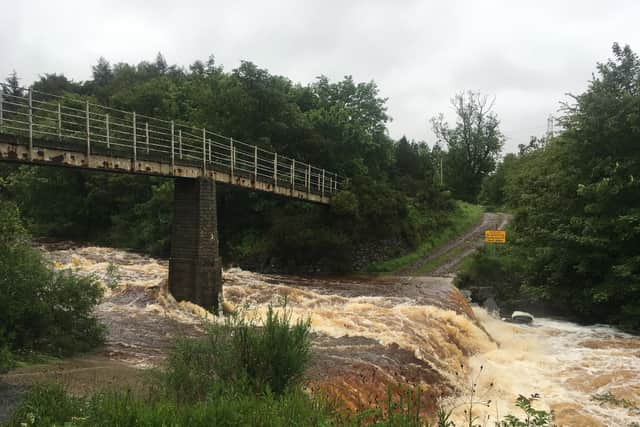Salmon migration project on Northumberland river awarded £500,000
and live on Freeview channel 276
The Wooler Water Reconnection Project has received the sum as part of the £40million second round of the Government’s Green Recovery Challenge Fund.
The £1.7million project will see the removal of the deteriorating Haugh Head ford and its associated check weirs and reconnect 22km of the Wooler Water to the River Tweed catchment.
Advertisement
Hide AdAdvertisement
Hide AdIt will also enhance the conditions needed to enable young and migrating salmon to thrive – the Tweed salmonid fishery is worth an estimated £24 million a year to the local economy and supports over 500 jobs.


The project will also create a new 1.5km heritage trail and new footbridge and a series of initiatives will be developed to help to connect the community with nature.
School children and scout groups will learn about topics ranging from local history, river morphology and geology, to nature and wildlife, river life and the countryside code.
Recreational activities to be developed include guided walks on subjects such as history, geology, birdsong, wildflowers, insects, family wildlife walks, fungi, photography and poetry.
Advertisement
Hide AdAdvertisement
Hide AdYoung people will be introduced to angling and there will be opportunities for all groups to participate in citizen science through counts of fish and instream invertebrates.
Luke Comins, director of the Tweed Forum, which is leading the project, said: “The ford represents one of the biggest remaining obstructions to fish passage in the entire Tweed system and has been deteriorating for a number of years.
"Through this long-planned project, we are using nature to resolve this man-made problem by reconnecting the river with the floodplain and creating conditions that will help to enhance fish survival, improve biodiversity and provide increased community access and opportunities for education and improved wellbeing.
"We’re extremely grateful to the Government’s Green Recovery Challenge Fund and the Environment Agency for enabling us to proceed with an initiative that will provide multiple benefits for residents and visitors to Wooler.”
Advertisement
Hide AdAdvertisement
Hide AdThe project is a partnership with Northumberland County Council, Tweed Foundation, Lilburn Estates, Middleton Estates, the Glendale Gateway Trust, Wooler Parish Council, Glendale Local History Society and Wooler Caravan Park.
The project’s remaining £1.2million funding costs will be provided by the Environment Agency and work is expected to start in late summer.
